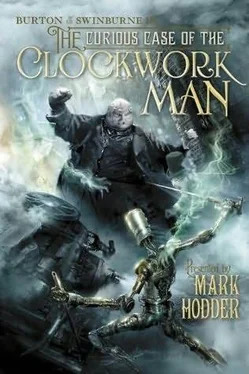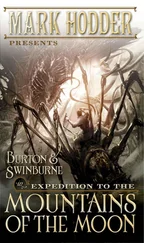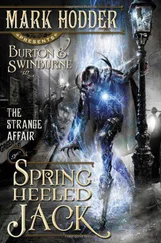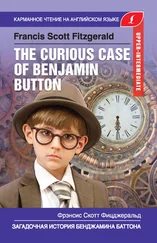Mark Hodder - The curious case of the Clockwork Man
Здесь есть возможность читать онлайн «Mark Hodder - The curious case of the Clockwork Man» весь текст электронной книги совершенно бесплатно (целиком полную версию без сокращений). В некоторых случаях можно слушать аудио, скачать через торрент в формате fb2 и присутствует краткое содержание. Жанр: Детективная фантастика, на английском языке. Описание произведения, (предисловие) а так же отзывы посетителей доступны на портале библиотеки ЛибКат.
- Название:The curious case of the Clockwork Man
- Автор:
- Жанр:
- Год:неизвестен
- ISBN:нет данных
- Рейтинг книги:3 / 5. Голосов: 1
-
Избранное:Добавить в избранное
- Отзывы:
-
Ваша оценка:
- 60
- 1
- 2
- 3
- 4
- 5
The curious case of the Clockwork Man: краткое содержание, описание и аннотация
Предлагаем к чтению аннотацию, описание, краткое содержание или предисловие (зависит от того, что написал сам автор книги «The curious case of the Clockwork Man»). Если вы не нашли необходимую информацию о книге — напишите в комментариях, мы постараемся отыскать её.
The curious case of the Clockwork Man — читать онлайн бесплатно полную книгу (весь текст) целиком
Ниже представлен текст книги, разбитый по страницам. Система сохранения места последней прочитанной страницы, позволяет с удобством читать онлайн бесплатно книгу «The curious case of the Clockwork Man», без необходимости каждый раз заново искать на чём Вы остановились. Поставьте закладку, и сможете в любой момент перейти на страницу, на которой закончили чтение.
Интервал:
Закладка:
They steered between vertical shafts of smoke as they crossed the great city, heading in a westerly direction with the dome of St. Paul's Cathedral glinting in the sunlight behind them.
It was mild and pleasant and Burton felt a thrill of freedom as the vista expanded around him. England's tight horizons had always given him a sense of claustrophobia. They were so unlike the vast distances of India, Africa, and Arabia, and it felt wonderfully liberating to see them drawing back as he gained altitude.
Soon, the crowded and dirty city dropped behind until only towns, villages, fields, forests, and rivers populated the landscape. It was densely green and possessed a warm cosiness quite different from any other country he'd ever visited.
“I suppose you're not so bad, old England,” he murmured, and blew out a breath in surprise. That was a sentiment he'd never expressed before!
“Wheeee-oooo!” came a cry, and Swinburne shot past, a blur of white swan feathers and bright red poet's hair.
“Look alive, Boss! The race is on!” Spencer yelled, whipping past Burton on the other side.
The king's agent grinned savagely, snapped his bird's reins, and bellowed: “Hey! Hey! Hey!”
His swan responded magnificently, pumping its wings so hard that the sudden acceleration pushed Burton back in his canvas seat. In this still air, his kite glided along smoothly, with none of the gut-churning twisting and tumbling that had characterised his pursuit of Brunel.
The small town of Weybridge slid beneath as Burton's bird caught up with Spencer's and overtook it.
“Keep up, dawdler!”
As the philosopher fell behind, Burton set his sights on Swinburne, who was by now a considerable distance ahead. The poet's bird was undoubtedly the fastest of the three, but did it possess endurance enough to hold the lead all the way to Tichborne House?
Burton settled into the chase.
They soared over Woking, then Aldershot, and, as they passed Farnham, he finally caught up with his assistant.
“Your bird's slowing!” he shouted.
“We shouldn't push them too hard!” Swinburne yelled back. “I concede defeat! You've won. Let's rein them in a little.”
They slowed, relaxed, flapped on. Herbert Spencer came abreast.
The sun was sagging lazily at the edge of the sky as Itchen Valley hove into view, the light golden on its pastures, the shadows long and darkly blue.
Burton led them onward, sinking down, flying low over patchwork fields and the rooftops of Bishop's Sutton to the village of Alresford. They veered in a southwesterly direction, passed over high hedges and rich water meadows, and arrived at the Tichborne estate.
Circling a willow-bordered lake, they flew low along its shore and yanked their release straps. The three box kites separated from the birds, drifted earthward, touched the grass, tumbled, and came to a standstill. The swans beat their wings and swept up over the willow trees and down onto the water beyond, landing with splashes and honks of delight. They paddled contentedly and watched through the drooping branches as the men clambered out of their wood and canvas carriages, each pulling a portmanteau from the large storage pockets at the rear of the kites.
“It's a precarious experience, landing these blinkin’ things,” Spencer commented.
“Exciting, though,” said Swinburne.
“Yus, lad, that as well,” the philosopher agreed. “I'll go an’ remove the birds’ harnesses.”
While Spencer dealt with the swans, Burton and Swinburne dismantled and folded the kites.
A man approached. He was wearing a fustian shooting jacket and baggy corduroy trousers, and held a double-barrelled shotgun crooked over his elbow. With his short dark hair, drooping mustache, and swarthy skin, he bore a passing resemblance to the king's agent, though he was shorter and lacked the habitual frown.
“Here, what's this, then?” he demanded.
“Good afternoon. Don't worry yourself, my good man. We're expected. I'm Burton.”
“Ah, yes, sir, sorry, sir. Colonel Lushington said you'd be arriving. I'm Guilfoyle, the groundsman.”
“Pleased to meet you, Mr. Guilfoyle. Is it all right with you if we leave our swans on the lake?”
“Of course, sir. There's plenty for them to eat in there, so they won't go hungry.”
Spencer rejoined them and was introduced: “This is Mr. Herbert Spencer, their keeper. He'll be down here from time to time to tend to them.”
“Very well, sir,” Guilfoyle answered, raising his cap to Spencer. “They're expecting you at the house, gentlemen. I'll walk you up. Leave your kites here. I'll find a place to store them.”
“Thank you.”
They followed the groundsman up the gently sloping lawn, which rose from the lake to the back of the house, skirted around the ivy-clad building, and arrived at its front. Beyond a carriageway, wheat fields stretched up to the brow of a distant low hill.
“Those are the famous Crawls,” Guilfoyle remarked.
“Crawls?”
“Aye. The fields old Mabella de Tichborne encircled to set the dole. Do you know the legend?”
“Yes. Bismillah! What a distance! No wonder she dropped dead!”
“Aye, sir, and no wonder she cursed the place first!”
Guilfoyle nodded a farewell and made to depart, but then stopped and gave a slightly strangled cough.
“Is there something else, my man?” Burton asked.
The groundsman removed his cap and pulled it nervously through his fingers.
“Well, sir, it's just that-that-well, what I mean is-”
“Yes?”
“Please, gentlemen, if you don't mind me sayin’ so, you should be careful at night. Stay in your rooms. That's all. Stay in your rooms.”
He turned and walked away, not looking back.
“How extraordinary!” Swinburne exclaimed.
“Yes, very odd,” Burton agreed. “Come on, let's go and announce ourselves.”
Four white Tuscan columns framed the entrance to the grand house. The three men climbed the steps and passed between them, through the portico. Swinburne tugged at a bellpull. It felt loose in his hand.
“Humph! Seems like the spring's broken!” he grunted, and used the brass knocker instead.
After a minute or so, the door was opened and a small, elderly, white-haired, and pleasant-faced Jamaican greeted them. Andrew Bogle, the butler.
“Sir Richard Burton and associates to see Colonel Lushington,” the king's agent announced.
“Yes, sir. Please come in. If you'd like to wait in the Reception Room, I'll inform the colonel that you have arrived.”
They were escorted into a plush chamber, where the butler left them, and were joined a few minutes later by a tall, smartly dressed, broad-shouldered man of ramrod-straight military bearing. Bronzed by an outdoor life, he appeared to be in his early sixties. He wore his greying hair cut very short, but possessed extravagant muttonchop whiskers, which stood out horizontally, ending in carefully waxed thin points above the tips of his shoulders.
“Good afternoon,” he barked. “Or evening. Which? No matter! Colonel Franklin Lushington is my name. Lushington will do. No formality required. Colonel, if you prefer. I'm glad you're here, Sir Richard. Henry Arundell speaks very highly of you. You are Sir Richard, aren't you? No mistake?”
“None, sir. I'm Burton.”
They shook hands, and Burton introduced his companions.
After arranging a room for Spencer-“below stairs” with the servants-to which he was escorted by Bogle, Burton and Swinburne followed Lushington to the library.
Supplied with the obligatory brandies and cigars, they settled into high-backed armchairs and got to business.
“Sir Alfred will join us for supper,” Lushington advised. “Or perhaps not. The plain unvarnished fact of the matter is-let's not beat about the bush-he's been behaving erratically in recent days and isn't reliable. I tell you that in confidence, of course. He doesn't always make sense. Some sort of nervous breakdown, I fancy.”
Читать дальшеИнтервал:
Закладка:
Похожие книги на «The curious case of the Clockwork Man»
Представляем Вашему вниманию похожие книги на «The curious case of the Clockwork Man» списком для выбора. Мы отобрали схожую по названию и смыслу литературу в надежде предоставить читателям больше вариантов отыскать новые, интересные, ещё непрочитанные произведения.
Обсуждение, отзывы о книге «The curious case of the Clockwork Man» и просто собственные мнения читателей. Оставьте ваши комментарии, напишите, что Вы думаете о произведении, его смысле или главных героях. Укажите что конкретно понравилось, а что нет, и почему Вы так считаете.












